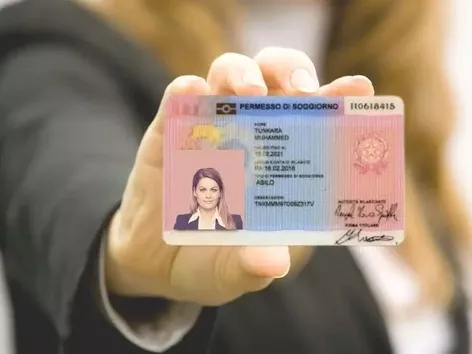How to get a residence permit in Switzerland: types of permits available and pathways to citizenship

Switzerland is a popular country among expats, because it guarantees its residents safety, highly developed healthcare and education systems and is a real haven of peace near the main European capitals. Find out what types of residence permits are available to foreigners and what are the paths to citizenship
For more than two centuries, Switzerland has been a favorite place for wealthy expats to move to, because in addition to a developed social sphere, there is a financial system that needs no introduction, political stability, favorable tax rules and a high quality of life. Moving here will be a good stage in your life, so today we will talk about ways to obtain a residence permit in Switzerland.
Who needs a residence permit to stay in Switzerland?
The rules of entry and residence in Switzerland depend on the nationality of the foreigner. However, the only thing that can be said about everyone, representatives of any country in the world need a residence permit in Switzerland to stay in the country for more than three months.
You must apply for a residence permit within 14 days of entering Switzerland.
Where to apply for a residence permit in Switzerland?
Switzerland is a federal republic consisting of 26 cantons. Each of the 26 Swiss cantons has its own cantonal migration services, which are responsible for issuing residence permits.
You must apply for a residence permit at the cantonal immigration office of the canton in which you wish to live. Different cantons may have different and specific requirements. You can find the address of the cantonal office by following the link.
What are the types of residence permits in Switzerland?
Depending on the purpose of the visit and the duration of the foreigner's stay, residence permits in Switzerland can be divided into the following types:
Permit B for primary or temporary residence
This permit is issued for five years to citizens of the EU/EFTA, and for one year to citizens of non-EU/EFTA countries. However, it can be continued if there is such a need. You will get a B permit if you want to move to Switzerland to work or study there. Therefore, you will need to have an employment contract valid for at least 1 year or be enrolled in a Swiss educational institution.
L permit for short-term residence
People who move to Switzerland to work in a specific position or company receive this permit. This permit is valid for up to one year and can be extended for a maximum of 24 months. If you have changed jobs, you may not be able to get a new permit.
Permit C for permanent residence
The Swiss C permit allows you to change jobs as many times as you like, work for any employer and live in Switzerland.
Expats from one of the EU countries, as well as the USA and Canada can get it after five years of living in Switzerland. Representatives of the rest of the world must live in the country for 10 years before registration.
Permit G for cross-border travel
This document is issued to foreigners who live in another country but work in Switzerland. People who go to work every day or every week can get the document. The main requirement for a G permit is to return to your country at least once a week, and this does not give the holder the same rights as a resident.
The permit can be renewed every year and is valid for the duration of the employment contract. However, it cannot exceed five years.
Permission Ci
The Ci permit is issued to the spouse of an employee of an intergovernmental organization or foreign embassy and their children (under the age of 25).
The holder of the Swiss Ci Permit can work in Switzerland as long as his family member is there.
Permit F for temporary residents
The Swiss F permit is issued to foreigners who, due to certain circumstances, have been ordered to leave Switzerland and return to their homeland, but cannot do so because their life may be in danger, the order to leave violates international law or any other technical reason.
In such situations, this category of expats receives a 12-month permit. Additionally, their canton of residence can extend the permit for a further twelve months if necessary. Also, the cantonal immigration services can make a decision to grant this foreigner the right to work.
N permit for asylum seekers
The Swiss N permit is granted to foreigners whose application for asylum is being considered by the Swiss authorities. An asylum seeker enjoys the same rights as a resident. In some cases, they may even be issued a work permit for paid work.
S permit for people in need of protection
The holder of a Swiss S permit can temporarily stay in Switzerland, but is not allowed to leave the country and return. This permit gives the right to work, but if the S permit holder wants to get a job or change employers, he must request a prior permit.
To move, travel or work safely in a new country, you will need health insurance. You can apply for an extended policy on our website here.
How to extend a residence permit in Switzerland?
A residence permit in Switzerland can be extended, but only the competent authorities decide whether to extend it or not. You can apply for an extension of your residence permit in Switzerland no earlier than after three months.
To renew your permit, you must have a valid permit as well as a valid passport/travel document and a letter informing you that your permit is expiring. The document must be submitted at the place of residence.
How can an expat get Swiss citizenship?
Swiss citizenship can be obtained by various categories of foreigners, including residents who live in the country for a certain period. Usually, foreign citizens have the right to obtain citizenship if they have lived in the country for 10 years or more.
The following three conditions for obtaining Swiss citizenship are the most popular:
The person is a child (born or adopted) of a Swiss citizen.
A child can become a Swiss citizen if he is:
- descendant of married parents, one of whom is Swiss;
- was born to an unmarried mother who is a citizen of Switzerland;
- born to an unmarried Swiss, if paternity is recognized before the age of 22;
- a foreign child under the age of 22 who was not included in the father's naturalization and has lived in Switzerland for five years, including one year immediately before submitting the application;
- a child of Swiss parents who has lost citizenship, but can prove close ties with the country.
Marriage with a Swiss citizen
You can apply for accelerated naturalization if you are married to a Swiss citizen, but under the following conditions:
- residence in Switzerland for 5 years or more, including the last 12 months immediately before submitting the application;
- stay in marriage for at least 3 years;
- knowledge of spoken Swiss language at B1 level and written at A2 level;
- integration into Swiss life and acquaintance with Swiss customs;
- compliance with Swiss laws;
- no period of receiving social assistance for the past three years.
Importantly! Persons officially married to Swiss citizens are entitled to simplified naturalization. If we are talking about a registered partnership, then in this case you can apply for citizenship through ordinary naturalization.
Citizenship by naturalization
Citizenship can be obtained after 10 years of continuous residence in the country. Persons who do not have the right to simplified naturalization can apply for citizenship. The naturalization process is open to anyone who meets the residency requirements and holds a C residence permit.
List of documents for obtaining citizenship by naturalization:
- application form;
- confirmation of type C residence permit;
- proof of language proficiency obtained from a registered language school in Switzerland.
A number of additional documents that depend on the Swiss canton or commune.
Switzerland is a very attractive place to move to, especially for citizens of Australia, Jamaica, the Philippines and Côte d'Ivoire. Therefore, be sure to pay attention to this country if you are looking for a stable and safe state.
We will remind you! Switzerland is facing a significant labor shortage, and many companies are struggling to attract skilled workers in various fields. The country is known for its high wages and quality of life, making it attractive to expats. We have already talked about the labor market in Switzerland, the salary level and how to apply for a job.
Igor Usyk - Head of Migration department at VisitWorld
To ensure a safe trip abroad, I advise you to contact a specialist. My colleagues, qualified specialists with legal education, will help you avoid unpleasant situations while traveling around the world.
We monitor the accuracy and relevance of our information. Therefore, if you see any error or discrepancy, please write to our hotline.
Recommended articles
3 min
Residence permit
Residence permit and citizenship of Qatar: rules and procedure for registration in 2024
Qatar is a country with a strong economy that attracts foreigners from all over the world. However, the procedure for obtaining a residence permit and citizenship of the country has its own peculiarities. Find out what an expat needs for a long-term stay in Qatar
15 wrz. 2024
More details3 min
Work
The UK remains a popular destination for job seekers from all over the world. However, finding a job in the country for foreigners can still be challenging. Find out more about who is eligible to work in the UK without a work permit, what documents are required for employment, and the specifics of the UK labor market
24 wrz. 2024
More details2 min
Residence permit
Residence permit in Italy: available types and registration procedure
For permanent residence in Italy, a foreigner must obtain a residence permit. Find out what types of permits exist and the features of the procedure for issuing a document in 2024
28 wrz. 2024
More details3 min
Travels
Switzerland is a country in the heart of Europe that attracts with its nature, culture and rich history. The country is home to a large number of important tourist spots. Find out which top attractions travelers should visit in 2024
29 wrz. 2024
More detailsAll materials and articles are owned by VisitWorld.Today and are protected by international intellectual property regulations. When using materials, approval from VisitWorld.Today is required.
